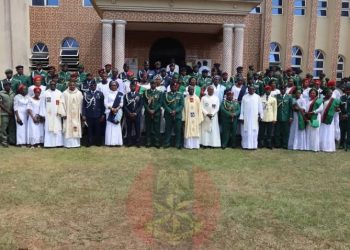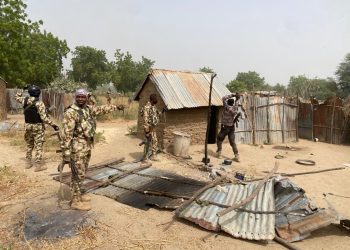By Nkechi Eze
The Initiative for Research, Innovation, and Advocacy in Development (IRIAD) and its policy think-tank, The Electoral Hub, have called for urgent reforms to strengthen Nigeria’s democratic institutions and expand women’s political representation, warning that the country’s democratic resilience risks stagnation without concrete, inclusive measures.
Speaking in an official statement to commemorate the International Day of Democracy on September 15, 2025, Director of IRIAD-The Electoral Hub, Princess Hamman-Obels, described the day as a critical occasion to reflect on the state of governance in Nigeria, more than two decades after the return to civilian rule. She noted that while the country has achieved notable milestones such as peaceful transitions between governments and the entrenchment of constitutional protections for civic freedoms, persistent flaws ranging from vote-buying and logistical lapses to weak electoral adjudication, continue to undermine citizens’ trust in democratic processes.
According to her, complex ethnic, religious, and regional divisions have also stifled inclusive political participation, particularly for women and youth, while restrictions on civil society, curbs on media freedom, entrenched corruption, and governance deficits have further weakened public confidence and triggered sociopolitical tensions.
This year’s theme for the International Day of Democracy, “Achieving Gender Equality, Action by Action,” Hamman-Obels stressed, holds particular resonance for Nigeria’s ongoing constitutional review. At the heart of the review is the Special Seats Bill for Women, a legislative proposal designed to address women’s chronic underrepresentation by creating additional elective seats exclusively for female candidates at both federal and state levels.
Despite women comprising nearly half of Nigeria’s population and accounting for 47.5 percent of registered voters in the 2023 general elections, their representation in governance remains critically low, less than 7 percent nationally. Current figures show women hold only 3.7 percent of Senate seats, 4.2 percent in the House of Representatives, and 5.4 percent in State Assemblies. “The Special Seats Bill aims to dismantle systemic barriers such as party biases and cultural constraints that have long excluded women from elective office,” Hamman-Obels explained. She added that the bill’s temporary provision, with a sunset clause after four election cycles, would serve as a corrective measure to fast-track gender parity in politics.
IRIAD argued that strengthening women’s participation in governance is vital for inclusive and effective policy-making, particularly in critical areas such as social welfare, healthcare, education, and human rights. It noted that increasing women’s representation would not only enrich governance with diverse perspectives but also advance Nigeria’s national development and fulfill regional and global gender equity commitments.
The Electoral Hub’s statement further issued a comprehensive call to action for all democratic stakeholders. It urged the National Assembly and constitutional reform committees to fast-track the review process and ensure the passage of the Special Seats Bill with broad-based public consultation. It tasked INEC and State Electoral Commissions to enhance institutional autonomy and intensify voter education targeted at marginalized groups. Political parties were challenged to democratize candidate selection, embrace equitable participation for women, and shun malpractices like vote-buying and intimidation. Security agencies, it stressed, must guarantee safety and impartiality during elections, while civil society and the media were called upon to expand civic education and serve as watchdogs against abuse of power. Citizens themselves were urged to exercise their rights actively, reject electoral violence and bribery, and reinforce democratic values in their communities.
The Executive arm of government was advised to strengthen anti-corruption frameworks and policies that promote accountability, while the judiciary was reminded of its duty to adjudicate electoral disputes independently and enforce gender equity provisions without fear or favor.
Reaffirming its commitment, IRIAD stated that democracy in Nigeria can only deepen through “sustained, concrete actions action by action that empower marginalized groups and strengthen institutions.” The organisation emphasized that the passage of the Special Seats Bill would mark a transformative step in building a democracy that is not only representative but also equitable and resilient.
“This International Day of Democracy is a renewed call to embrace democratic principles with resolve and continuity,” Hamman-Obels declared. “Nigeria’s democratic future hinges on the collective effort of all stakeholders to enact meaningful reforms and to conduct elections that genuinely reflect the will of the people.”
















